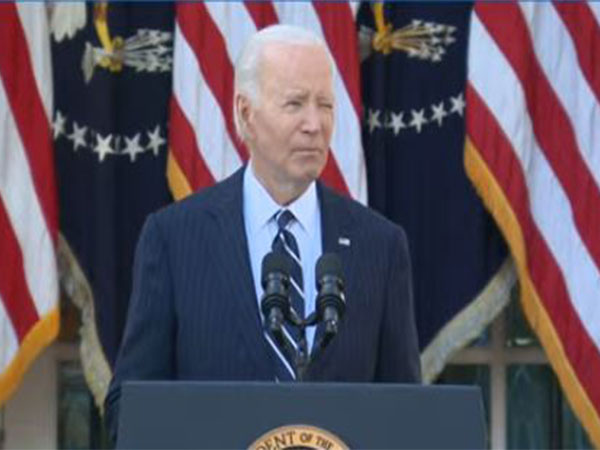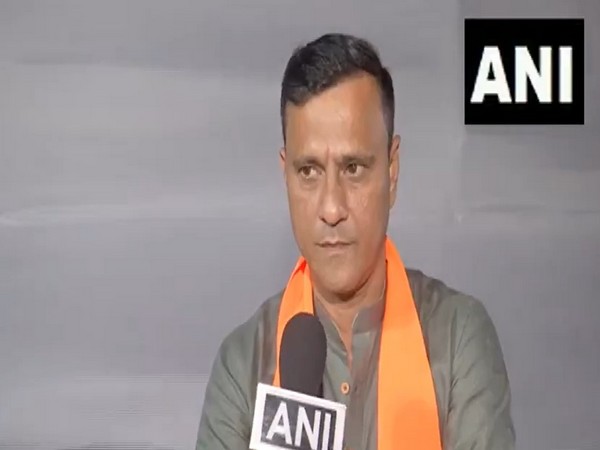New Delhi [India], July 20 (ANI): Union Health Minister JP Nadda on Saturday chaired a training and awareness programme for 1,000 street food vendors conducted by the Food Safety and Standards Authority of India (FSSAI) in Vigyan Bhawan and underscored the significance of training and re-orientation programmes for street food vendors.
He was joined by Anupriya Patel, Union Minister of State for Health and Family Welfare, a press release by the Ministry of Health and Family Welfare said.
The one-day training programme for 1,000 street food vendors from various regions of Delhi, covered a wide range of essential topics including personal hygiene, food handling, cooking practices, and waste management. Participants were also educated on the Food Safety and Standards Act, particularly focusing on the guidelines outlined in Schedule 4 regarding the licensing and registration of food businesses.
The Union Health Minister emphasized the importance of both training and re-orientation programmes for street food vendors. He also encouraged the street food vendors to take advantage of the PM Street Vendor’s AtmaNirbhar Nidhi (PM-SVANidhi) programme to enhance their business further. Additionally, he also highlighted the commitment of the Hon’ble Prime Minister to build 100 street food streets in as many districts in the country, the release added.
Highlighting the importance of street food in India, Nadda directed the FSSAI to waive the registration fee of Rs 100 for street food vendors. He said, “To encourage vendors and promote more and more registrations, FSSAI would waive off the Rs100 registration fee for the street food vendors.”
The Union Health Minister said that “the innovative ‘Street Safe’ Rapid Testing Kit should be provided to all vendors attending the Food Safety and Certification (FoSTaC) training to ensure that safe food is used by the street food vendors across the country.”
“In addition, we should focus on empowering the street food vendors by enrolling them on food delivery platforms to increase their reach to the consumers. I urge these platforms to support street food vendors by providing user-friendly technology solutions without imposing a financial burden,” he further said.
Nadda encouraged the street food vendors to practically apply the training they received today, in their daily life so that our traditional street food culture remains safe for everyone to consume. He said, “It is my firm belief that if vendors apply safe practices and cleanliness, they will also see growth in their businesses.”
He further said that the certificates that trained vendors receive from FSSAI will also boost their business as it will provide a source of reliability and trust among consumers.
During the event, Nadda launched an ‘SOP for Street Food Vendors’, which outlines critical dos and don’ts for maintaining hygiene and safety in street food preparation.
He also inaugurated a dedicated portal for street food vendors, allowing them to share success stories and access resources on food safety (https://sfv.fssai.gov.in/).
Additionally, testimonials from trained vendors showcased the transformative effect of the training programme and highlighted its positive impact and relevance in the food safety landscape.
To educate the street food vendors and all other food handlers, a video on the usage of oil, milk and milk products, and waste disposal, was released at the event. The participant vendors were provided with testing kits for instant adulteration testing, further empowering them to uphold quality standards.
Anupriya Patel in her address highlighted the government’s commitment to enhancing food safety nationwide. She said, “Street food is intrinsic to our culture. Street food is not just any meal but a tradition for Indian people. Be it basket chaat in Lucknow or kulhad chai in Varanasi, street food is linked to the identity of Indian cities.”
“It is important to maintain the standards of hygiene and cleanliness by the vendors whose food is consumed by everyone. At the same time, it is also important to ensure regular testing of street food so that a safe and hygienic street food ecosystem is created in India,” she further added.
The Union Ministers also undertook a visit of the “Food Safety on Wheels” vehicle of FSSAI which has provisions for testing items like oil and milk on the go.
Apurva Chandra, Union Health Secretary highlighted the popularity of street food in India which is renowned across the world. He underlined the paramount importance of food safety that vendors must ensure for both hygiene and building their business further. He said that FSSAI is going to train one lakh street food vendors in the next year through its FoSTaC programme across the country, the release said.
The initiative aims to enhance the knowledge and practices of street food vendors, ensuring better food safety standards and public health. Street food vendors also took a pledge to keep their food, equipment and the surroundings clean and provide safe food to everyone.
The initiative marks a significant step in the FSSAI’s ongoing efforts to enhance food safety across the nation, building on the successful training of over 18 lakh food handlers through the FoSTaC programme since its inception in 2017. (ANI)
Disclaimer: This story is auto-generated from a syndicated feed of ANI; only the image & headline may have been reworked by News Services Division of World News Network Inc Ltd and Palghar News and Pune News and World News
HINDI, MARATHI, GUJARATI, TAMIL, TELUGU, BENGALI, KANNADA, ORIYA, PUNJABI, URDU, MALAYALAM
For more details and packages
















